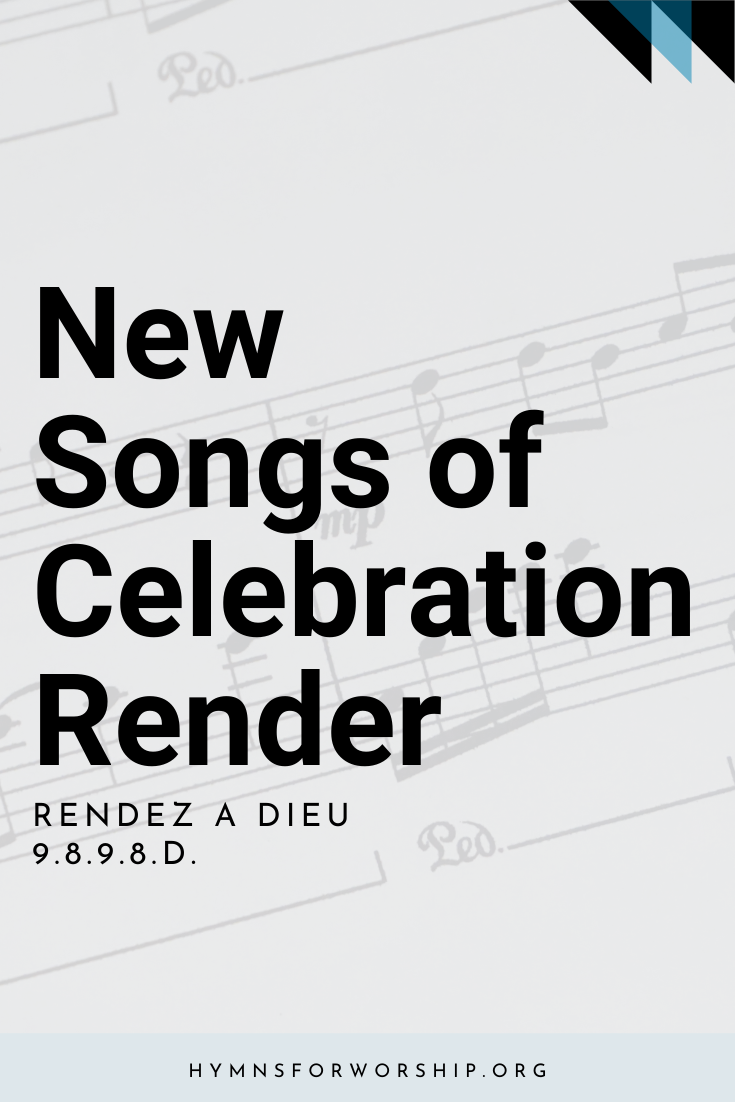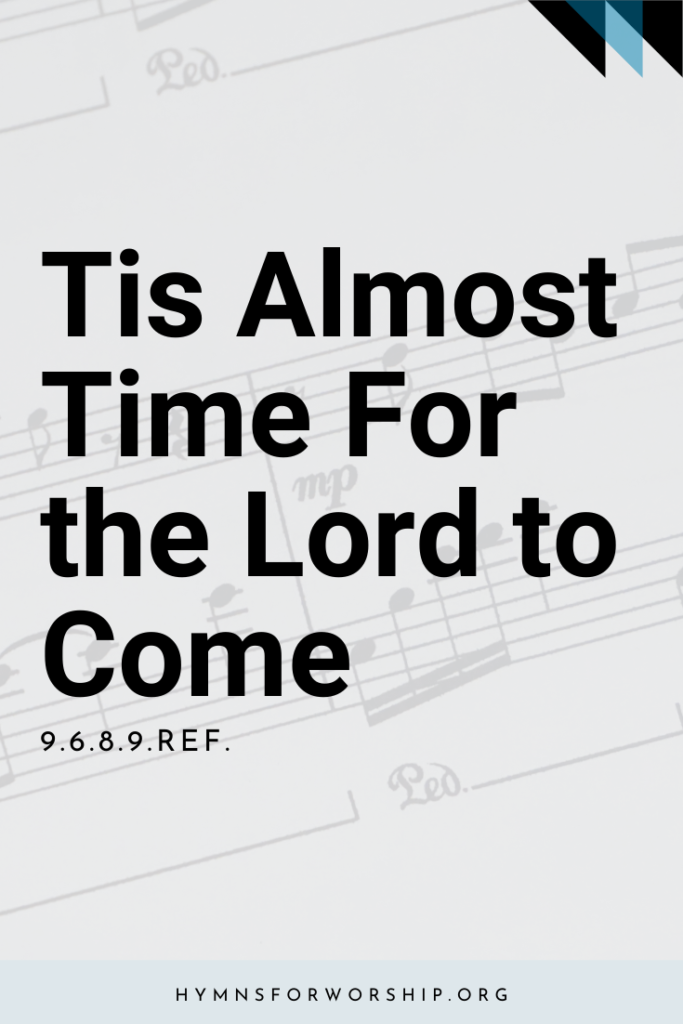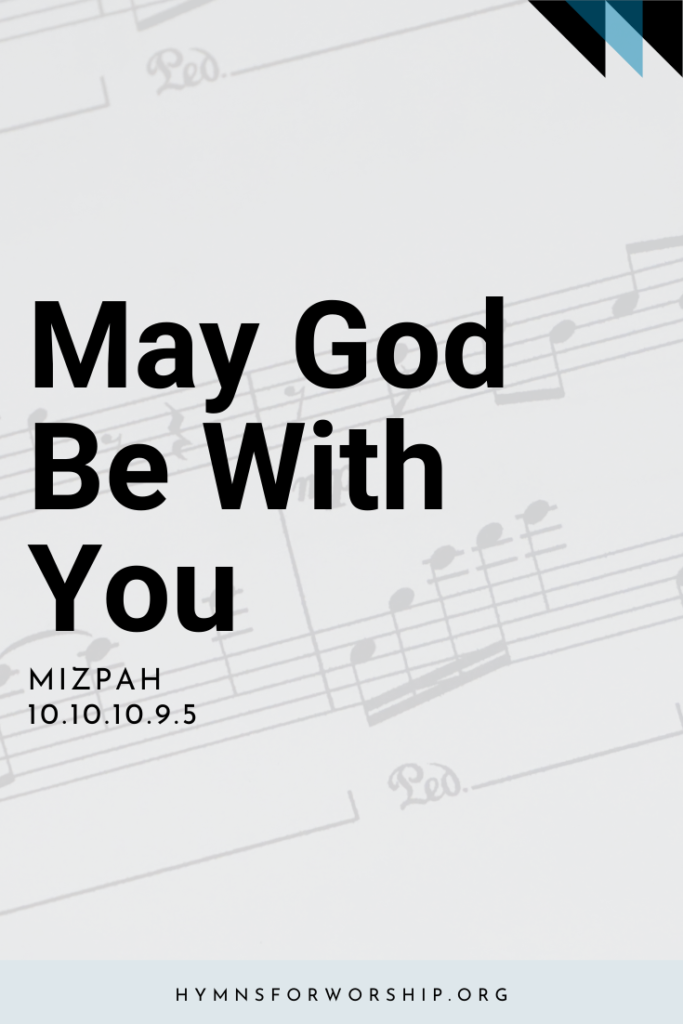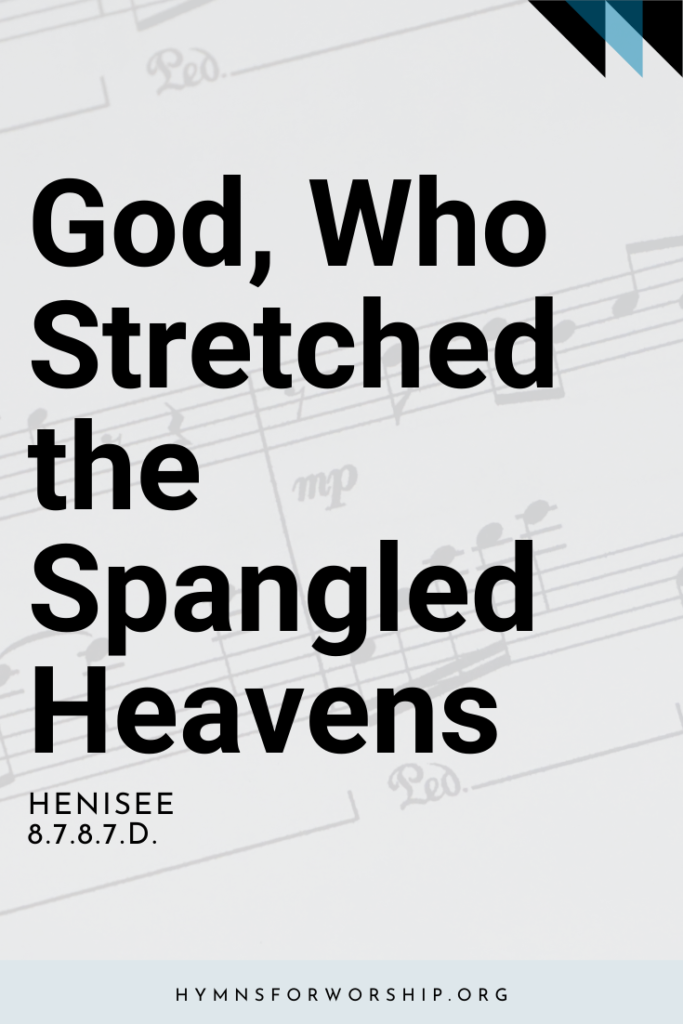WORSHIP >> Adoration & Praise
SDAH 13
New songs of celebration render
To Him who has great wonders done.
Love sits enthroned in ageless splendor:
Come, and adore the mighty One.
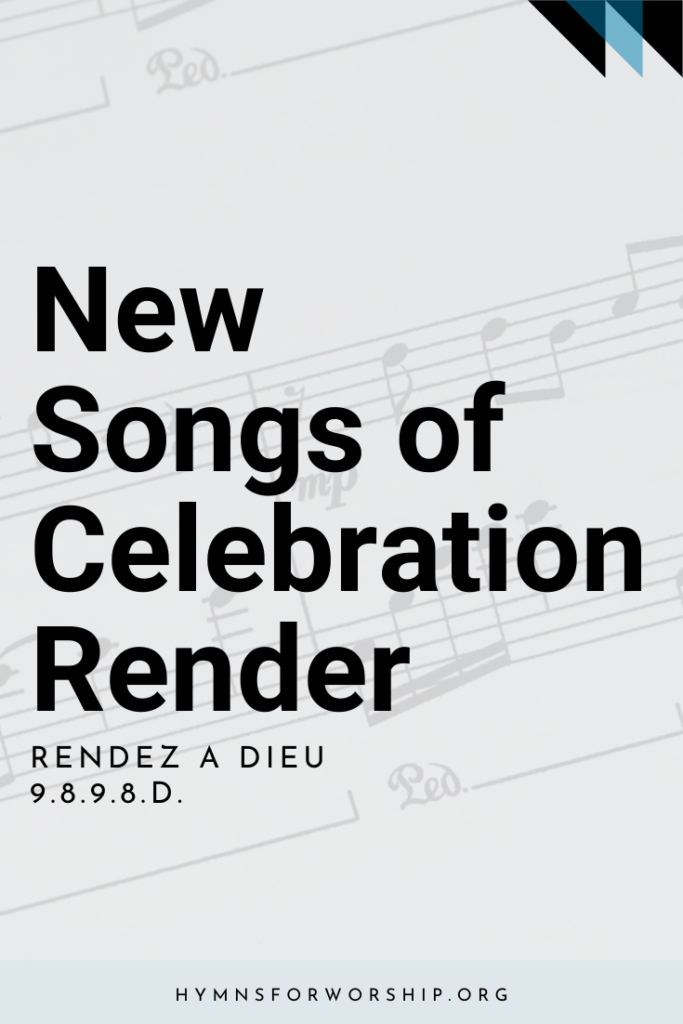
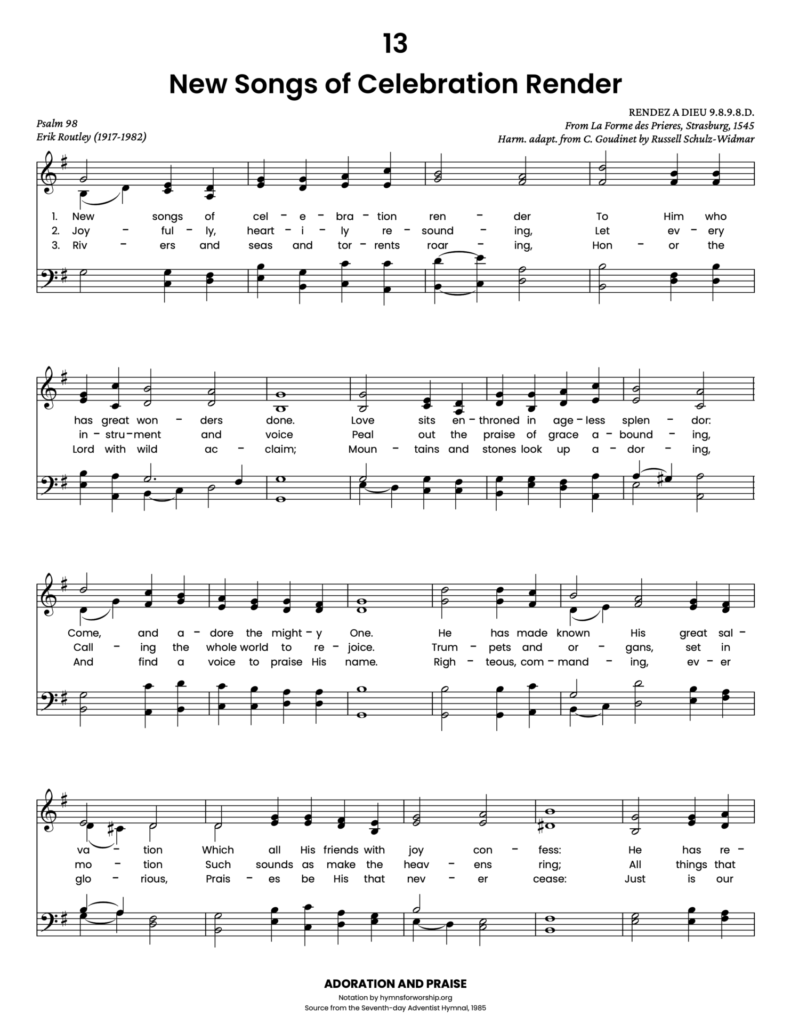
Get the hymn sheet in other keys here
For Worship Leaders
Make each hymn more meaningful with these helpful tools: Short, ready-to-use hymn introductions for church bulletins, multiple ways to introduce a hymn based on your worship theme and in-depth history and insights to enrich your song service.
Hymn Spotlight: New Songs of Celebration Render
A hymn bursting with joy and energy, New Songs of Celebration Render is a vibrant paraphrase of Psalm 98, calling all creation to sing to the Lord for His marvelous works. Written by Erik Routley, one of the most influential hymnologists of the 20th century, this text captures the psalm’s triumphant spirit, urging us to praise God with fresh voices and renewed hearts.
The tune, RENDEZ À DIEU (Render to God), was composed by Louis Bourgeois, one of the key figures behind the Genevan Psalter (1551), a collection of melodies that shaped congregational singing in the Reformation. This tune’s strong and singable character has made it a timeless favorite.
Routley once said, “I am more interested in the people who sing the hymns than in the hymns themselves.” This hymn invites us to do just that—to lift our voices in joyful praise, celebrating the greatness of our God. As we sing today, may we join in the eternal song of worship, proclaiming His faithfulness and love to all the earth!


Text
1
New songs of celebration render
To Him who has great wonders done.
Love sits enthroned in ageless splendor:
Come, and adore the mighty One.
He has made known His great salvation
Which all His friends with joy confess:
He has revealed to every nation
His everlasting righteousness.
2
Joyfully, heartily resounding,
Let every instrument and voice
Peal out the praise of grace abounding
Calling the whole world to rejoice.
Trumpets and organs, set in motion
Such sounds as make the heavens ring;
All things that live in earth and ocean,
Make music for your mighty King.
3
Rivers and seas and torrents roaring,
Honor the Lord with wild acclaim;
Mountains and stones look up adoring,
And find a voice to praise His name.
Righteous, commanding, ever glorious,
Praises be His that never cease:
Just is our God, whose truth victorious,
Establishes the world in peace.

Hymn Info
Biblical Reference
Ps 98:1-9
Author
Erik Routley (1917-1982)
Copyright
Words copyright 1974 by Agape, Carol Stream, IL 60188. All rights reserved. Used by permission. Adaptation copyright 1979 by Hinshaw Music, Inc. Used by permission 2/15/84.
Hymn Tune
RENDEZ A DIEU
Metrical Number
9.8.9.8.D.
Tune Source
From La Forme des Prieres, Strasburg, 1545. Harmony adaptation from C. Goudinet by Russell Schultz-Widmar
Theme
ADORATION & PRAISE

